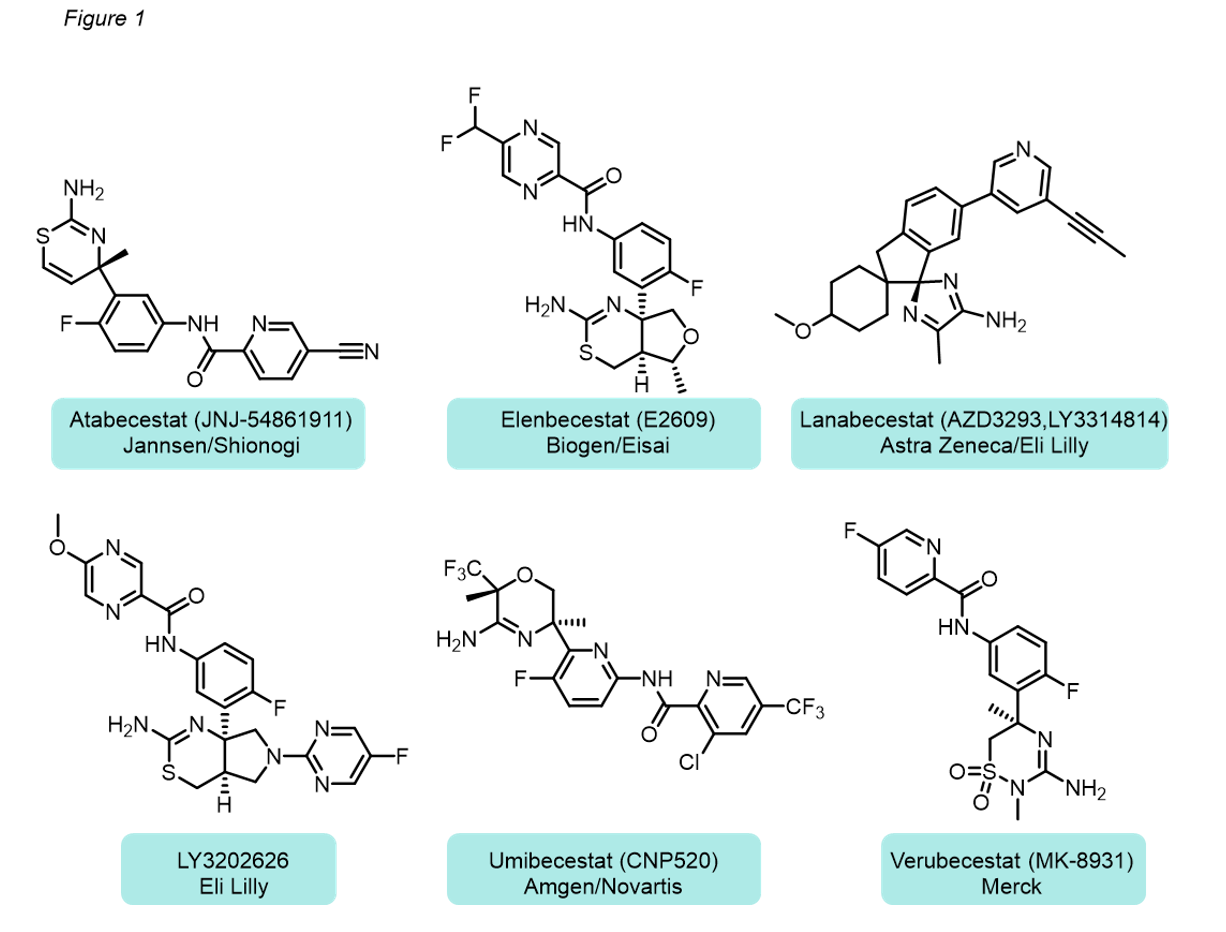By Paolo Ricci (Associate Principal Scientist, Chemistry)
In the latest edition of our blog series, highlighting exciting new developments in medicinal chemistry, we have focussed on the topic of BACE1 inhibitors for the treatment of Alzheimer’s Disease (AD).
AD is a progressive neurologic disorder and the main cause of dementia in elderly people (over 65 years old). Currently there is no preventive therapy for AD and the present FDA-approved therapies do not prevent or delay the disease progression, thus arising the urge for effective therapies. Human genetic and clinical studies have highlighted the abnormal generation and aggregation of amyloid-β (Aβ) peptide plaques as a hallmark for AD. Aβ plaques are generated from the amyloid precursor protein (APP) via proteolytic cleavage by beta-site APP cleaving enzyme 1 (BACE1). For this reason, BACE1 inhibitors have been extensively investigated as potential disease-modifying drugs for AD. Up to date, six BACE1 inhibitors have reached phase II and III clinical trials (Figure 1). Amongst these, Umibecestat (CNP-520) has recently shown an excellent PK profile, safety window and a higher BACE1/BACE2 selectivity that could overcome some BACE2 inhibition-related adverse effects, such as depigmentation in skin and hair.1

Nonetheless, as for previous inhibitors, a cognitive worsening and non-progressive reduction in brain volume was detected after and during the clinical trials as a result of an on-target effect of the BACE1 inhibition. These common side-effects raised the question whether BACE1 is a suitable target of AD inhibition and whether the related inhibitors should be further investigated in trials for long term prevention and treatment of Aβ plaques formation.
A recent perspective discussed the results of the discontinued trials for the BACE1 inhibitors in the symptomatic and pre-symptomatic stage and highlighted the lack of clinical trials on patients with low or absent levels of Aβ plaques.2 A preventive low-dosing chronic administration of BACE1 inhibitors over the years would still be less expensive than current anti Aβ-immunotherapies. Moreover, BACE1 inhibitor associated cognitive impairment in individuals with pre-symptomatic AD is generally reversed within three months of treatment cessation and an intermittent dosing strategy could suppress adverse cognitive effects but still delay or prevent AD symptoms. Alternatively, these inhibitors could be used on patients previously treated with Aβ immunotherapies and help to maintain a low level of Aβ plaques. Finally, further clinical trials, cognitive tests, studies in populations with higher risks of developing AD and a detailed risk-benefit analysis might establish BACE1 inhibitors as a viable option for AD prevention and prompt the development of novel and more effective candidates.
Our medicinal chemistry team is always keeping an eye on the latest research to make sure we are up to date with recent developments. The next review will be available soon, but in the meantime, get in touch to find out how we can help solve your drug discovery challenges.
1 Discovery of Umibecestat (CNP520): A Potent, Selective and Efficacious b-Secretase (BACE1) Inhibitor for the Prevention of Alzheimer’s Disease J. Med. Chem. 2021, 64, 12562
2 The Case for Low-Level BACE1 Inhibition for the Prevention of Alzheimer Disease Nature Reviews Neurology 2021, 17, 703.